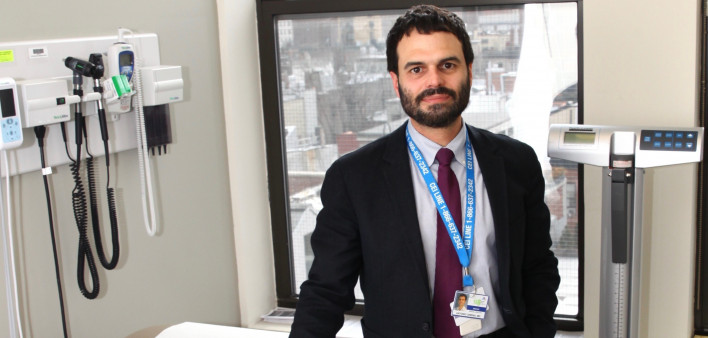In many ways, your relationship with your primary doctor or health care provider is the nerve center of your wellness journey—it’s where you can always go with questions or concerns about any aspect of your physical or mental health. That’s why that relationship must be built on trust, says Antonio Urbina, MD, who’s been an HIV doc for 25 years and heads the HIV- and LGBTQ-specializing Institute for Advanced Medicine within New York City’s Mount Sinai health system.
“You should really feel comfortable talking with your provider even about things that may be sensitive, such as sexual health and any current or past substance use or mental health challenges, like depression or anxiety,” says Urbina. “Your provider should take those things seriously and without judgment.” And if you don’t get that from your provider, he says, you should consider looking elsewhere if your health plan and/or area provides those options.
What if they don’t? Urbina suggests talking to other folks living with HIV—if not in person then via POZ Forums or the myriad Facebook community groups for people living with HIV—for tips about how to smooth out a bad dynamic with a provider. He suggests bringing up your concerns directly yet respectfully. Too shy or nervous? Consider bringing a loved one or friend to help you articulate your needs, he says. “You don’t want it to be confrontational, but it helps to have an ally.”
It’s always great, he adds, to come to visits with a list of your questions and concerns so you don’t forget them—not to mention your own personal notes about your treatment history, plus any studies or articles you might come across about HIV care.
“Something that’s come up a lot recently is the issue of weight gain related to certain HIV meds,” he says. “I’ve had patients say they’ve had weight gain despite no changes in their exercise or diet—so we’ll discuss switching HIV meds for a few months to see if that helps, which it has in a couple of patients."
And as much as Urbina discourages other providers from being paternalistic with patients, he asks that patients keep an open mind when providers suggest starting or switching meds—for HIV or any other condition, such as high cholesterol, diabetes, high blood pressure or depression.
“Just considering trying it,” he says. “We can always stop, and there’s no harm done.”
Ultimately, says Urbina, it’s all about creating a partnership between provider and patient “that can last not just for years but even decades.” Such a bond should go beyond viral load, T cells and other lab numbers, he says, and embrace a holistic approach to your wellness, including whether you’re finding happiness, calm, safety and meaning in your daily life.
“Nobody knows your body better than you do,” he says. “The idea that ‘doctor knows best’ is antiquated. You get the best outcomes when decision-making is shared and both sides have very little of their own ego in the game."







3 Comments
3 Comments